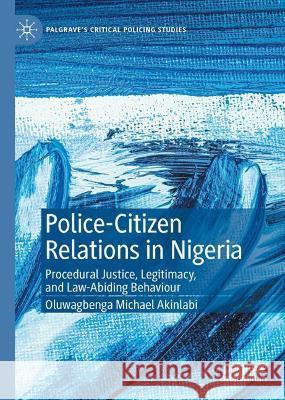Police-Citizen Relations in Nigeria: Procedural Justice, Legitimacy, and Law-Abiding Behaviour » książka
topmenu
Police-Citizen Relations in Nigeria: Procedural Justice, Legitimacy, and Law-Abiding Behaviour
ISBN-13: 9783030929183 / Angielski / Twarda / 2022
Police-Citizen Relations in Nigeria: Procedural Justice, Legitimacy, and Law-Abiding Behaviour
ISBN-13: 9783030929183 / Angielski / Twarda / 2022
cena 322,77
(netto: 307,40 VAT: 5%)
Najniższa cena z 30 dni: 308,41
(netto: 307,40 VAT: 5%)
Najniższa cena z 30 dni: 308,41
Termin realizacji zamówienia:
ok. 16-18 dni roboczych.
ok. 16-18 dni roboczych.
Darmowa dostawa!
Kategorie:
Kategorie BISAC:
Wydawca:
Springer Nature Switzerland AG
Seria wydawnicza:
Język:
Angielski
ISBN-13:
9783030929183
Rok wydania:
2022
Wymiary:
21.0 x 14.8
Oprawa:
Twarda
Dodatkowe informacje:
Wydanie ilustrowane











